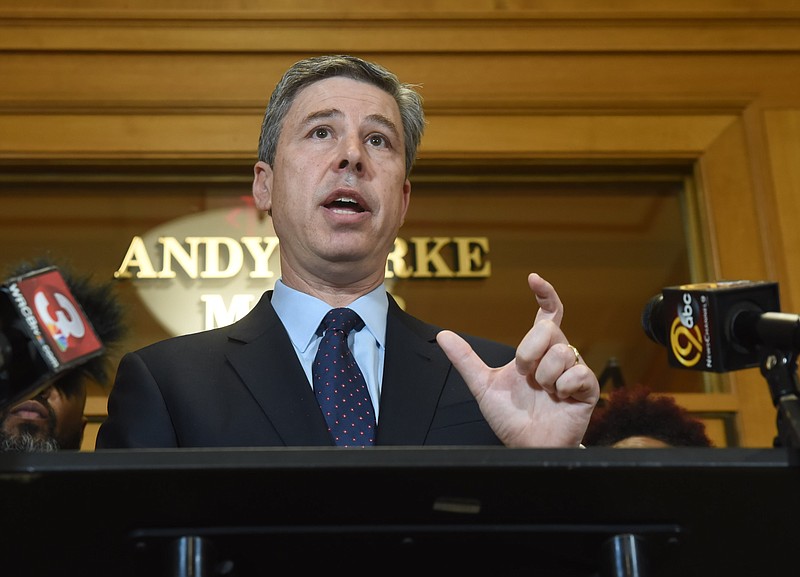The city of Chattanooga recently released a new dashboard of data sets from the Chattanooga Police Department to track policing and racial equity in light of several high-profile police killings and demonstrations across the country this summer.
ChattaData.org, the city's public data resource website, now tracks citations, arrests, use-of-force incidents and citizen complaints with the department, breaking down the incidents by race to track trends of inequity. The release comes after scores of protests in Chattanooga this summer over police brutality and continued calls for defunding or divesting from the police department.
"What happened in Kenosha is unacceptable," Chattanooga Mayor Andy Berke said Friday of an incident in Wisconsin last week in which a 29-year-old Black man was shot multiple times in the back by police and partially paralyzed.
"This is so disturbing, So for us, we are still committed to making sure our relationship with the community is positive, that our officers are trained in the best possible ways and that we have policies that make sure these kinds of events don't happen," Berke said. "We've been compiling information for years and we think that transparency is a good thing that gives more information to our community and assures that accountability is part of what we do every day."
During the police department's departmental report to the Chattanooga City Council on Tuesday, Chief David Roddy said the data has spurred questions and conversations within the department, but more importantly it should solicit input from other stakeholders on how to address disparities.
"We've had this data for a short period and it's really just helped us generate our own questions," Roddy said. "We're part of what generates the numbers that you're looking at, but we're not the overall thing that can help move the needle in the other direction I welcome and encourage ideas and stakeholders into these conversations, from you all to anyone else who helps us understand what do we do with this."
According to the city's website, the individual data sets included in the new section are:
Public Arrests - Data on individuals arrested by Chattanooga police and their charges since Jan. 1, 2018, grouped by case numbers.
Public Arrest Charges - Data on individuals arrested by the department and their individual charges since Jan. 1, 2018
Citations - Data on individuals cited by the department since January 1, 2016
Citation Details - Data on individuals cited by the department and their individual violations since Jan. 1, 2012
Police Incidents - Data on police incidents from 911 calls that result in police reports being created
Internal Affairs Incidents - A broad view of an Internal Affairs Incident where each row of data is a singular incident or case file with some summary information.
Internal Affairs Incidents Detailed - A more detailed view of Internal Affairs incidents where each row of data is an individual involved in an incident or investigation.
Internal Affairs Allegations - A detailed data set on all allegations made against Chattanooga Police Department officers during the course of an internal affairs investigation.
Contact Sarah Grace Taylor at staylor@timesfreepress.com or 423-757-6416. Follow her on Twitter @_sarahgtaylor.
